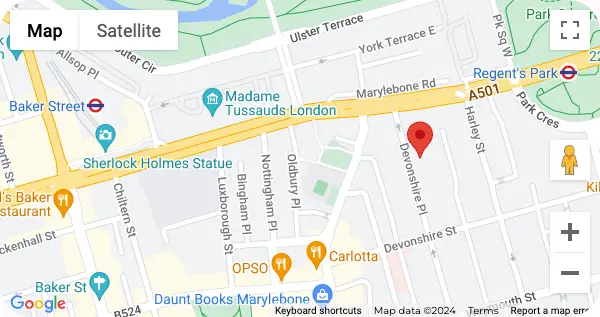Wegovy contains semaglutide, a GLP-1 receptor agonist that mimics your own hormones. It enhances insulin secretion, delays gastric emptying, and reduces appetite, resulting in a caloric deficit and weight reduction.
Introduction
Wegovy is an authorised prescription weight management medicine in adults with obesity or overweight and at least one weight-related condition in the United Kingdom. It is new product for a new generation that looks into the body mechanisms of validating your hunger, to help you control your weight more effectively when combined with a reduced-calorie diet and an increased physical activity.
Now available in the UK following approval from the MHRA, Wegovy is now considered part of standard management of obesity, a complex and chronic disease that affects a considerable segment of the UK population. Clinical trials have shown its ability to help regulate appetite because it interacts with hormone receptors that play a role in body weight.
What is Wegovy?
Wegovy is a glucagon-like peptide-1 (GLP-1) receptor agonist. GLP-1 is short for glucagon-like peptide-1, a hormone that occurs naturally within the body, especially in the gut and the brain. Its major physiological functions include its ability to stimulate insulin secretion, delay gastric emptying, and appetite control. Semaglutide replicates the action of this hormone, assisting the body in regulating appetite and food consumption.
Semaglutide is a so-called GLP-1 receptor agonist, and it binds to same receptors in the brain that the natural GLP-1 hormone influences. These receptors are in the hypothalamus, the brain’s master control centre for hunger and energy homeostasis. When those receptors are triggered, they send a message to you brain that you feel more full and less hungry. It is a way to reduce the total amount of food eaten without the patients feeling that they are punishing or depriving themselves with unsustainable, dieting-calorific levels.
Wegovy is injected subcutaneously once a week. The dosage is started at a low level and is gradually raised over a period of weeks up to a predetermined therapeutic maintenance dose. This gradual process allows the body to become adjusted and can also help minimize the gastrointestinal side effects that are most commonly experienced in initial treatment.
Mechanism of Action
Wegovy works by mimicking the hormone GLP-1. This hormone is secreted in response to food ingestion) and has important effects on glucose metabolism and satiety. When semaglutide locks onto the GLP-1 receptors, it sets off pathways that decrease food seeking and slow stomach emptying.
Wegovy slows down gastric emptying so that food stays in the stomach longer, leading to a longer feeling of fullness. Wegovy also reduces the urge to eat, and decreases the amount of food a person eats throughout the day, by acting on brain centres that control appetite.
This two-pronged action targeting both the GI system and the central nervous system helps explain why Wegovy can be especially helpful for those who find themselves constantly hungry, rely on food for emotional comfort or eat particularly large portions. It offers physiologic support that is an adjunct to behavioral interventions such as diet counselling and physical activity programs.
Effects on Appetite Regulation
Part of the way Wegovy helps in weight loss is by changing signals of appetite. The activation of central GLP-1 receptors inhibits the hunger hormone ghrelin and stimulates the secretion of satiety peptides. And this has the effect of recalibrating the body’s natural hunger cues.
Part of the way Wegovy helps in weight loss is by changing signals of appetite. The activation of central GLP-1 receptors inhibits the hunger hormone ghrelin and stimulates the secretion of satiety peptides. And this has the effect of recalibrating the body’s natural hunger cues.
Especially in a clinical setting the latter effects seem valuable, if sustainable, medically supervised weight loss is the aim. By targeting hunger hormones, Wegovy helps drive longer-term adherence to reduced-calorie diets and reduces the risk of weight regain after initial weight loss.
Effective & professional doctor-led Wegovy at our central London clinic
Verified Before & After
Verified Before & After
Timeline for Initial Results
The initial appetite suppressing effects of Wegovy may be felt as early as the first week of using this medication. Because the medicine is titrated (increased gradually) over weeks, the result of weight loss often is not really seen until the end of the first month.
Dosing is initiated at 0.25 mg per week and titrated to 2.4 mg per week at week 17. This helps the body get used to the medicine and also helps to control some of the side effects such as feeling or being sick, constipation and bloating that can sometimes occur; they are usually mild and do not last long.
Reduction in appetite can manifest earlier in clinical terms than weight lose, because clients begin to consume less calories. This quick decrease in food consumption is often motivating for patients as it provides a starting point for their weight-loss programmes.
Long-term Weight Loss Expectations
Heavy weight loss on Wegovy generally does not happen quickly. Research has shown that average weight loss tends to peak at 3 to 6 months of use and begin to taper off after that, while still continuing to decrease beyond that 3 -6 months.
Wegovy tends to have its full effect by week 68, the end point in most clinical trials. By now, patients who take Wegovy, together with a calorie-controlled diet and regular physical activity, can look forward to losing an average of up to 15 percent of their body weight. The results can be influenced by real-world clinical behaviour including adherence (or not) to a treatment regimen, baseline metabolic health and lifestyle decisions.
Wegovy is intended for long-term use. If this support is not there, ie treatment was abandoned – the hormonal support for appetite control isn’t there and weight will be regained. Hence, long-term health care is indicated to preserve effects and to further adapt treatment whenever necessary.
Clinical Study Outcomes
The evidence-based on which Wegovy has been given the all-clear comes from the STEP clinical trial programme, which included more than 4,500 participants from various countries around the world. These trials assessed the safety and efficacy of semaglutide for chronic weight management in adults with a body mass index (BMI) of 30 or higher, or 27 or higher with at least one weight-related condition.
Participants who took Wegovy in STEP 1 lost an average of 14.9 percent of their body weight over 68 weeks. By comparison, the placebo group had lost only an average of 2.4 percent of their weight. These findings were statistically significant and of clinical importance.
Additional analysis revealed that participants taking Wegovy also had improvements in secondary health measures, including a reduction in blood pressure, better control of blood sugar and a smaller waistline. These shifts are consistent with the finding that Wegovy is not only associated with more weight loss but with broader benefits for cardiometabolic health.
Real-life Experiences
In clinical practice patients in the UK taking Wegovy have experienced a measurable change in weight loss and appetite suppression. The drug may have particular potential for those who have previously had difficulty losing weight through diet and lifestyle changes.
Some of the most common experiences described are feeling full on smaller meals, snacking less frequently, and having better control over portion size. With time, these changes accumulate to promote sustained weight loss, increased energy, and enhanced physical activity. Although individual experiences may differ, the vast majority of users say that Wegovy’s appetite-shrinking ability is a welcome relief from the constant mental strain of hunger every day.
It is worth mentioning, however, that in real-world use Wegovy is only ever going to be as effective as the structured weight management programme that it is part of. This also entails recurring support from healthcare providers, nutritional counselling and personalized plans for physical activity.
Conclusion
Wegovy is an effective treatment option that works to address pathways in the body that regulate appetite and system that control body weight. It functions as a GLP-1 receptor agonist by imitating the activity of a type of natural hormone which helps to suppress hunger, induce satiety and lessens gastric emptying. These metabolic shifts result in a decreased cumulative food consumption leading to a sustained negative calorific balance accompanied by long-term weight loss.
When used under medical supervision in tandem with dietary changes and physical activity, Wegovy allows adults with a weight problem obesity or being overweight to achieve meaningful and sustained weight loss. The approval and success in clinical trials of this agent is a major step change in the approach to treating obesity, but a condition that still presents major public health problems.
Reserve a GLP-1 appointment
One of our experts will be more than happy to answer any questions you have.
Book AppointmentMali
★★★★★
Amazing clinic, always so accommodating, always thrilled with the results. Been attending this clinic for years and it’s definitely one of the best in the Harley Street area!
14th February 2026
WP L
★★★★★
I had a wonderful experience from the moment I walked in! The receptionist was incredibly warm and friendly, and the doctor was exceptionally professional and made me feel completely at ease.
13th February 2026
Luísa Moura
★★★★★
Had the Morpheus treatment with Rose, she was very kind and explained everything in detail. I highly recommend the clinic and her services.
13th February 2026












